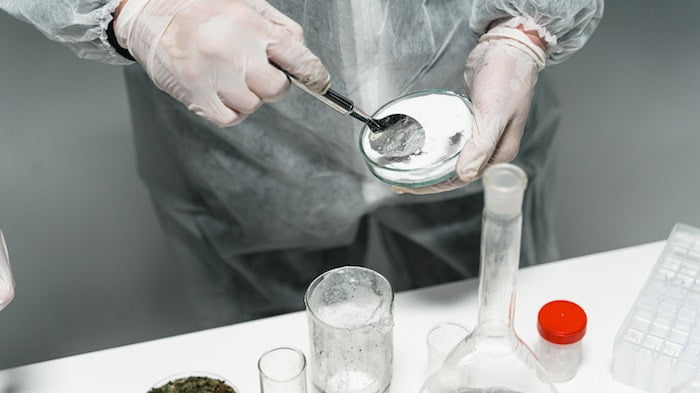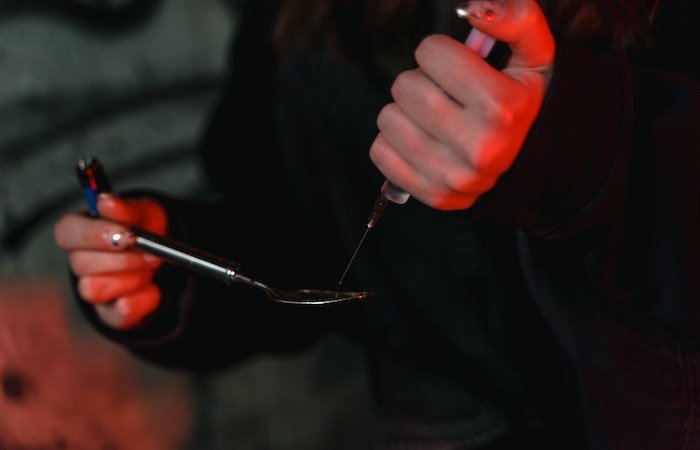Drug Rehab & Alcohol Rehab in Somerset and near Somerset
Quick Links for Drug & Alcohol Rehab in Somerset or near Somerset
- Private Rehab VS Council-Funded Drug & Alcohol Rehab in Somerset?
- How Much Does Drug & Alcohol Rehab in Somerset Cost?
- What are Some Tips for Choosing the Right Drug and Alcohol Rehab in Somerset?
- How Long Does Drug & Alcohol Rehab in Somerset Last?
- Cocaine Rehab in Somerset
- Heroin Rehab in Somerset
- Cannabis Rehab in Somerset
- What Therapies are Available at a Drug & Alcohol Rehab in Somerset?
Rehab Recovery provides access to a comprehensive, specialist and individualised addiction programme for the assessment and treatment of those suffering from addiction problems, both substance and behavioural.
Our service is for people whose lives are being damaged by the compulsive use of alcohol, illegal or prescribed drugs, food, gambling, shopping, sex or any other substance or behaviour that provides immediate mood change or escape or avoidance from reality, helping them to find their way to sobriety through drug & alcohol rehab in Somerset.
- Alcohol addiction and binge drinking
- Benzodiazepine addiction
- Cannabis use disorder
- Cocaine dependence and crack cocaine addiction
- Opioid use disorder
- Behavioural addictions such as gambling addiction
- Buprenorphine addiction
- Ketamine addiction
Start your recovery journey at a rehab in Somerset today by calling our expert team on 0800 088 66 86
Why Should I Seek Out Drug Rehab & Alcohol Rehab in Somerset or near Somerset?

Gardens outside a drug rehab and alcohol rehab in Somerset
If you or someone you know is struggling with an addiction [1], it is important to understand that addiction is a disease and should be treated as such. It is an illness that alters the chemistry of your brain.
For this reason, addiction is seen as a chronic disease that needs to be treated and monitored by trained professionals.
Many people believe that they can overcome addiction alone and without the help of drug and alcohol rehab in Somerset.
This is usually because of the stigma that surrounds addiction and rehab, both in Somerset and across the world in general.
However, seeking proper drug & alcohol rehab treatment [2] from a drug & alcohol rehab in Somerset gives you the best possible chances of reaching sobriety and being able to maintain it long after you have checked out of your chosen drug rehab and alcohol rehab facility in Somerset.
Not only that, but addiction is also an illness that often co-occurs alongside other mental health issues such as depression, anxiety, or obsessive-compulsive disorder.
When you seek professional help for your addiction through a drug and alcohol rehab in Somerset, the medical staff there will be able to diagnose and effectively treat not only the addiction itself but also any co-occurring conditions.
Other mental health conditions like the ones mentioned above can often push people towards repeated disruptive behaviours so it is imperative that they are treated to reduce the chances of relapse in Somerset.
If a drug and alcohol rehab in Somerset seems like the right choice for you, then call us today on 0800 088 66 86
Private Rehab VS Council-Funded Drug & Alcohol Rehab in Somerset

Two people discussing drug rehab & alcohol rehab in Somerset or near Somerset
Many people believe that private drug & alcohol rehab in Somerset is too expensive and go straight to NHS-funded rehab without even exploring the possibilities of private rehab facilities.
Unfortunately, however, the NHS both in Somerset and across the UK in general doesn’t have the resources to deal with the sheer amount of drug & alcohol abusers who need their help.
Both private & NHS-funded drug & alcohol rehab facilities in Somerset have their pros and cons, and it is important to explore all your options before making your decision.
The benefits of private drug rehab & alcohol rehab in Somerset and near Somerset
- Immediate admission to drug & alcohol rehab in Somerset
- A safe and comfortable environment at a drug & alcohol rehab in Somerset or near Somerset
- A comprehensive treatment program using cutting-edge drug & alcohol rehab therapies at rehab in Somerset
- 24/7 access to medical professionals and addiction specialists at a dedicated drug & alcohol rehab centre in Somerset
- Individually tailored drug & alcohol rehab treatment plans
- High success rates for drug & alcohol rehab in Somerset
- Dual diagnosis and treatment for co-occurring conditions whilst at drug & alcohol rehab in Somerset
- Relapse prevention techniques to help you stay sober after you leave drug & alcohol rehab in Somerset
- Uncover the root cause of your drug & alcohol addiction problems and identify your triggers
- Aftercare after drug & alcohol rehab in Somerset has ended
The cons of private drug rehab & alcohol rehab in Somerset and near Somerset
- A typically high cost for drug & alcohol rehab treatment in Somerset
- Significant disruption to your usual life whilst staying at a residential drug & alcohol rehab in Somerset

The benefits of council-funded drug rehab & alcohol rehab in Somerset and near Somerset
- Access quality drug & alcohol rehab treatment in Somerset entirely free of charge
- Confidential services and support
- Drug & alcohol rehab treatment that is accessible to everyone in Somerset
- Local support from a nearby GP or other drug & alcohol rehab treatment provider in Somerset
The cons of council-funded drug rehab & alcohol rehab in Somerset and near Somerset
- Lengthy admission times for drug & alcohol rehab treatment in Somerset
- Low availability of residential drug & alcohol rehab services in Somerset
- A higher chance of relapse after initial drug & alcohol rehab treatment in Somerset has concluded or even during
- No immediate access to addiction experts and support 24/7, as one would get at a residential drug & alcohol rehab in Somerset
- You may see different therapists each time you receive drug & alcohol rehab support in Somerset
- No dual-diagnosis or treatment of co-occurring conditions – any other conditions would be treated separately from drug & alcohol rehab treatment in Somerset
Addiction is not considered a ‘choice’ or ‘moral failing’ on behalf of the drug or alcohol addiction sufferer – rehab is about treating the disease of addiction.
For help and guidance choosing between private and NHS rehab in Somerset, call us today on 0800 088 66 86
Residential Drug & Alcohol Rehab Vs. Outpatient Rehab in Somerset and near Somerset

The primary decision facing drug and alcohol rehab attendees in Somerset is whether to enter drug & alcohol rehab treatment as an inpatient or an outpatient – two very different models of recovery.
With so many different recovery stories out there, you’ll likely find a huge range of experiences, some advocating inpatient care and others championing outpatient treatment.
However, it’s important to carefully weigh the pros and cons of each drug & alcohol rehab treatment option in Somerset in light of your unique circumstances and lifestyle.
Attending a residential drug and alcohol rehab in Somerset involves staying on-site for the duration of your programme.
This comes with a host of benefits, which include but aren’t limited to:
- Living in a drug & alcohol rehab 24/7 reduces the likelihood of distraction and eliminates the risk of relapse whilst there
- Residential drug & alcohol rehab treatment programmes are highly personalised
- The level of drug & alcohol rehab treatment is intensive
- Patients follow a strict routine to help them prepare for life post-drug & alcohol rehab in Somerset
- Consistent access to medically supported drug & alcohol rehab facilities in Somerset
- Round-the-clock supervision from medical practitioners during detox at a drug & alcohol rehab in Somerset
- Medically assisted therapy during detox to prevent withdrawal
- Post-drug & alcohol rehab support services active for at least 12 months in Somerset
Another factor to consider is that, since residential drug and alcohol rehab centres in Somerset are private, patients are guaranteed a fast-tracked admissions process.
This means that no time is wasted when it comes to receiving quality rehab treatment in Somerset, which is especially important considering that SUD is a progressive disease.
Upon enrolling as an inpatient at drug & alcohol rehab, you’ll have a fully personalised care plan drawn up for you by the best addiction specialists in the field.
Because each SUD case is unique, treatment in Somerset must be individualised and tailored to suit the needs of each drug & alcohol rehab patient.
Residential drug and alcohol rehab centres in Somerset are far more likely to provide bespoke care and integrated treatment that tackles any co-occurring disorders.
This greatly increases the longevity and sustainability of treatment.
This personalisation of care begins as soon as the patient checks in, and is especially important during detoxification.
Inpatient drug and alcohol rehab clinics offer bespoke detox plans in a medically supported drug & alcohol rehab facility in Somerset.
This means that throughout the tapering process, a team of medical professionals will be monitoring your progress and prescribing medication to ease adverse symptoms.
Remaining healthy and in a good place both physically and mentally ensures your progress for the duration of subsequent therapy.
However, inpatient drug and alcohol rehab care in Somerset is not without its drawbacks, and perhaps the most prominent disadvantage is the cost.
Committing to a 28-day residential programme at a drug & alcohol rehab in Somerset can be a financial burden for many people, with clinics charging around £6,000 to £12,000 per recovery plan.
Moreover, many drug and alcohol rehab centres in Somerset offer payment plans on a sliding scale basis to ensure their programmes remain accessible.
Alternatively, addicted individuals can opt to receive outpatient drug & alcohol rehab care here in the UK, with the main benefits including:
- Inexpensive care that’s available via the NHS and other publicly-funded means in Somerset
- A flexible treatment schedule that allows more freedom during drug & alcohol rehab recovery in Somerset
- The possibility of a home detox in Somerset instead of having to undergo one in the unfamiliar environment of a drug & alcohol rehab
- Aftercare in the form of community-based group therapy and other local support in Somerset

Older woman at a drug rehab & alcohol rehab clinic in Somerset or near Somerset
Choosing to recover from addiction as an outpatient allows for more flexibility, which can suit many high-functioning individuals who do not want to enter full-time drug & alcohol rehab in Somerset.
Because patients can plan drug and alcohol rehab treatment sessions according to their schedule, many people choose to remain at work or in education throughout their SUD recovery.
Continuing to live at home often means that the initial detox is carried out remotely, which can be a huge comfort for many people with milder dependencies.
Alongside being able to plan treatment appointments, outpatients at drug & alcohol rehab typically receive their therapy programmes for free or at a minimal cost.
This allows people in need of help to receive professional aid free from financial concerns, which can be a great burden for many people in residential drug & alcohol rehab treatment in Somerset.
In spite of these obvious advantages, outpatient rehab treatment in Somerset comes with some major drawbacks that can be dangerous for many individuals.
Detoxing at home may seem optimal, but it also means you won’t have access to medical care like you would at drug & alcohol rehab, which can be dangerous and even life-threatening for victims of drug or alcohol addiction.
Moreover, those suffering from acute addictions will be surrounded by possible relapse triggers as long as they remain at home.
Instead, they should be placed in a highly supervised environment, 24 hours per day.
An additional issue is that, due to its affordable nature, outpatient rehab care is in high demand in Somerset and across the UK, and this has increased waiting times significantly.
Because the NHS is overstretched, the time taken between referral and successfully entering rehab treatment can be up to a year or more, meaning someone’s health will continue to deteriorate.
Begin your recovery journey at a rehab in Somerset today – call our team on 0800 088 66 86
Alternatives to Drug & Alcohol Rehab in Somerset and near Somerset

Alcoholics Anonymous meeting outside of a drug rehab and alcohol rehab in Somerset
Professionally supported drug and alcohol rehab in Somerset is one of the best ways to recover from addiction, for a variety of reasons.
However, if you have decided that attending rehab is not the right fit for you, there are other options that can help you overcome your addiction.
It is important to note, however, that if your addiction is severe or has lasted for a long time, attending an inpatient drug & alcohol rehab facility in Somerset is the recommended option for you.
- Alcoholics Anonymous [3]
- Narcotics Anonymous [4]
- SMART (Self-Management And Recovery Training) [5]
- Home detox (if relapse does occur but re-entry to drug & alcohol rehab is not necessary)
- Al-Anon Family Meetings [6]
- Continued outpatient treatment (To help maintain the lessons learned at drug & alcohol rehab in Somerset)
Start your recovery journey with the help of addiction treatment services in Somerset, call our expert team on 0800 088 66 86
Holding a Professional Intervention for Drug & Alcohol Rehab in Somerset and near Somerset

Therapy in progress at a drug and alcohol rehab in Somerset or near Somerset
It is a common misconception that a person can only attend rehab in Somerset when they feel ready. However, sometimes people need a little push in the right direction with some encouragement from those closest to them.
Many people choose to stage interventions the ‘old-fashioned’ way by getting close friends and family members to approach the person with a substance use disorder to try to encourage them to attend drug & alcohol rehab in Somerset. When this tactic fails, professional intervention is recommended.
Community Reinforcement And Family Training (CRAFT) [7] is a different way to approach interventions.
It works by rewarding good behaviour and not rewarding bad behaviour. For example, when a person chooses sobriety or shows some self-control, their efforts will be positively acknowledged.
CRAFT does not require confrontation the way regular intervention does. Instead, a professional interventionalist will teach families to identify the ways in which they are unintentionally participating in the addictive behaviour so they can change their behaviour in anticipation for attending full drug & alcohol rehab in Somerset.
Through CRAFT intervention, families will learn how to care for their own needs instead of focusing solely on the needs of the substance user, and they will be taught how to spot the windows of opportunity to begin a conversation about treatment at a drug & alcohol rehab in Somerset.
For more guidance on conducting an intervention in order to convince a loved one to attend rehab in Somerset, call our team on 0800 088 66 86
How Much Does Drug & Alcohol Rehab Cost in Somerset and near Somerset

Drug and alcohol rehab costs in Somerset will vary depending on the rehab treatment centre you choose, the level of treatment required, and the amount of time you need to spend in the facility. There are also plenty of variables and there is usually an option to suit every budget as well as payment plans to make attending drug and alcohol rehab more accessible to those who need it.
In severe cases of addiction, a 28-day stay at a drug and alcohol rehab in Somerset is recommended. If you choose to stay in a single occupancy room for 28 days, you will usually pay between £8,000 and £12,000. If you decide to stay in a multiple occupancy room for 28 days, you can expect to pay around £6,000.
In less severe cases, you could choose a 10-day drug and alcohol rehab programme in Somerset. The price of a single occupancy room for 10 days at a drug and alcohol rehab clinic usually costs between £3,000 and £6,000, with 10 days in a multiple occupancy room costing around £4,000.
Undergoing rehab and detox at home will cost around £1,500, however, it is important to note that this will be difficult as you will still be surrounded by your usual triggers and temptations.
If you do decide to go through drug and alcohol rehab treatment at home in Somerset, it is a good idea to ask someone you trust to stay with you to keep a close eye on you.
There are also some free or low-cost rehab treatment options in Somerset if your addiction is not too severe or long-lasting. The most common of these are community drug & alcohol support groups such as AA.
You can also visit your GP for a referral to a rehab addiction therapist, however, it may be several months before your first appointment as NHS waiting times can be quite long, [8] due primarily to the high demand for its services, the significant cost of treating addiction and the chronic underfunding the organisation has faced in recent years.
For a more accurate estimation of how long your stay at rehab in Somerset will take, call us today on 0800 088 66 86
Drug & Alcohol Detox at Rehab in Somerset or near Somerset

A woman taking medicine at a drug and alcohol rehab in Somerset
A detox is a process of eliminating harmful substances from your body, particularly trace elements of addictive substances.
After long-term and repeated use of drugs or alcohol, your body and mind will develop a dependency.
This is because substance abuse changes the chemical makeup in your brain, and you end up only feeling normal when you take more of the substance.
Attempts to stop taking the substance can result in unpleasant and sometimes dangerous mental and physical withdrawal symptoms.
Undergoing a medically assisted detox at a drug & alcohol rehab or through a clinic is the safest and most effective way to manage withdrawal symptoms.
When a detox is done at an inpatient drug and alcohol rehab facility in Somerset, you will have round-the-clock access to medical professionals who can monitor you as you go through the withdrawal stages. They can also regularly administer medications to keep the withdrawal symptoms at bay.
In the cases of alcohol withdrawal, most drug rehab and alcohol rehab facilities will administer a benzodiazepine called Librium.
Librium is used for its calming effects and can ease symptoms of anxiety that are often a result of the early stages of alcohol detox.
Other alcohol withdrawal symptoms are nausea, vomiting, diarrhoea, sleep disturbances, alcoholic seizures and delirium tremens. Some of these withdrawal symptoms can be life-threatening if left untreated, which is why seeking treatment in a professional drug & alcohol rehab facility with trained medical professionals is safest.
Once you have finished your course of Librium and are through the detox stage, you will spend the rest of your time at a drug and alcohol rehab in Somerset tackling the emotional causes of your drug or alcohol addiction [9] and learning to identify your triggers.
Before leaving drug and alcohol rehab, you will also learn relapse prevention techniques such as HALT (Hungry, Angry, Lonely, and Tired), so you are ready to face the outside world.
- Mindfulness
- Mind, Mouth and Muscle [10]
- Self-care
- Joining support groups in Somerset or online
- Being aware of your triggers and how to handle them when outside of the controlled environment of a drug & alcohol rehab in Somerset
- Deep breathing
- Have an emergency contact or sponsor that you can call if you are struggling, either a personal contact, a member of a mutual support group or a designated support worker from your drug & alcohol rehab in Somerset
To learn whether or not you will need a detox at rehab in Somerset, call us on 0800 088 66 86
How Long Does Drug & Alcohol Rehab in Somerset or near Somerset Last?

A clock at a drug rehab & alcohol rehab in Somerset or near Somerset
The length of time you will need to spend at a drug and alcohol rehab facility in Somerset will vary depending on the substance you are addicted to and your level of addiction.
If your addiction has lasted for several months or years, it is recommended to attend rehab for 28 days so that the physical addiction can be treated as well as the psychological addiction, no matter what substance you are addicted to.
The minimum amount of time you can attend drug and alcohol rehab is 7 days, this is to make sure that you have medical professionals around you as you go through the detox stage, which is the most difficult stage of drug and alcohol rehab, and as touched on above, can be fatal in extreme cases of alcohol addiction and usually requires a medically assisted detox.
Other addictions such as opioid addiction, heroin addiction, and benzodiazepine addiction often require a medically assisted detox due to the withdrawal symptoms. Withdrawal symptoms from these substances aren’t always life-threatening but are difficult to manage without the use of prescription medications.
If your addiction is to any of these substances, a 28-day rehab is recommended.
Shorter stays at drug and alcohol rehab in Somerset are possible in addictions where a medically assisted detox is not required such as cannabis addiction, cocaine addiction, and amphetamine addiction. In these cases, a 7-to-10-day stay may be sufficient.
For a better estimation of how long your stay at a drug and alcohol rehab in Somerset will last, call us on 0800 088 66 86
Cocaine Rehab in Somerset or near Somerset

Cocaine is a powerful and highly addictive stimulant drug that causes short bursts of intense highs. Because the highs are so brief, people often take larger amounts more often in order to continue to feel the high.
Cocaine is so addictive because it causes dopamine – the ‘feel-good’ hormone – to linger in the brain instead of being reabsorbed, this gives the user a feeling of intense euphoria
Even though it is a highly addictive substance, cocaine is not physically addictive. This means that any withdrawal symptoms you experience will be emotional rather than physical and also means that most people seeking drug and alcohol rehab treatment for a cocaine addiction only need to stay in a rehab facility for around 10 days.
Beat your cocaine addiction at a drug and alcohol rehab in Somerset today – call us on 0800 088 66 86
Heroin Rehab in Somerset or near Somerset

Heroin is a highly addictive substance and is incredibly difficult to come clean from. Heroin is a physically addictive drug, which means that you will need to complete a physical detox before you can attend any therapy.
Detoxing from heroin can cause several unpleasant withdrawal symptoms such as depression and anxiety, vomiting, muscle pain, sleep disturbances, and in extreme cases, heart attack or stroke.
Most people with heroin addiction are prescribed medication to replace the heroin – such as methadone.
They have then weaned off this medication slowly and under the care of a professional until they are substance-free.
Drug and alcohol rehab can help you with your heroin withdrawal, as well as any effects of using heroin such as hepatitis.
Beat your heroin addiction at a drug and alcohol rehab in Somerset today – call us on 0800 088 66 86
Cannabis Rehab in Somerset or near Somerset

Someone writing in a journal at a drug & alcohol rehab in Somerset or near Somerset
Cannabis is arguably one of the most abused substances in the world. Despite its popularity for causing the user to feel calm and relaxed, cannabis use can cause paranoia, anxiety, psychosis, and persistent coughs.
Cannabis is not a physically addictive drug, meaning that overcoming an addiction to cannabis is unlikely to cause too many physical withdrawal symptoms.
Some people have reported headaches and slight nausea, however, the most common withdrawal symptoms from cannabis are mental such as intense cravings, mood swings, anxiety, memory loss and impaired coordination.
If you are thinking of attending drug and alcohol rehab for cannabis addiction, you should expect to be in the rehab facility for around 10 days.
Beat your cannabis addiction at a drug and alcohol rehab in Somerset today – call us on 0800 088 66 86
What is Alcohol Addiction?

Therapy for alcohol addiction at a drug rehab and alcohol rehab in Somerset
Despite the stigma and false narratives surrounding alcohol addiction, it’s important to note that those who misuse alcohol aren’t doing so out of choice.
Medically, alcohol addiction, also known as alcohol dependence, alcoholism, and Alcohol Use Disorder (AUD) [11] is a chronic disease that changes the way our brains work.
Those suffering from AUD encounter significant physical and psychological impairment as their dependence grows in severity.
A cornerstone sign that someone is harbouring AUD is experiencing withdrawal symptoms.
Characterised by mental and physical discomfort, withdrawal occurs when an individual tries to abstain from alcohol.
Those who are in denial about their addiction may think they can stop drinking whenever they want, but unsupervised attempts can make them feel uncomfortable at best and put their lives in danger at worst.
Denial will need to be overcome if an individual is to take the first step towards recovery.
Depending on someone’s addiction severity and the quantities of alcohol they’re used to drinking, withdrawal symptoms can be mild or severe.
When a person who has been drinking large doses regularly suddenly stops, the body can go into an uncomfortable and potentially dangerous process of withdrawal.
Mild symptoms often include headaches, fatigue, insomnia, and nausea, while acute symptoms can include psychosis, vomiting, muscle spasms, and seizures.
The reason behind these symptoms lies in how alcohol dependence impacts the brain: specifically the reward pathway or mesolimbic system.
As the name suggests, this part of the brain is responsible for seeking out sources of dopamine, aka the pleasure hormone.
Because alcohol is a substance that triggers dopamine release, the brain comes to rely on and actively seek out this reward stimulus: thus creating an optimal environment for addiction to form.
Despite clear signs of physical and psychological impairment, victims of AUD will continue to drink due to changes that have occurred in the brain. [12]
Before long, alcohol cravings will start to take over their daily lives, leading to further mental health issues and feelings of guilt.
Over time, alcohol addiction will further damage regions of the brain responsible for memory, balance, and judgement, all of which can cause significant complications for eventual alcohol rehab treatment.
Therapies Available at Drug & Alcohol Rehab in Somerset and near Somerset

Group therapy at a drug rehab & alcohol rehab in Somerset
Attending rehab for an addiction to drugs or alcohol in Somerset is about much more than just treating the addiction.
After the initial detox stage is complete, you will begin a treatment program that will include different types of therapies that will be tailored to suit your needs.
These therapies will aim to diagnose any underlying co-occurring mental health issues that may have led to your addiction as well as identify the root cause of your addiction and your triggers.
Some common treatments you can expect from drug and alcohol rehab in Somerset include:
- Cognitive Behavioural Therapy (CBT)
- Dialectical Behavioural Therapy
- Brief interventions
- Motivational interviewing (MI)
- Holistic and Alternative Therapies (art therapy, music therapy, equine therapy, mindfulness, meditation, yoga, etc.)
- Group therapy
- Individual therapy
- Family therapy
- Co-dependency treatment
- Twelve-step facilitation therapy
Begin your recovery journey at a rehab in Somerset today – call our team on 0800 088 66 86
Other Statutory-Funded Drug & Alcohol Rehab Services in Somerset

Support group taking notes about alcohol addiction at a drug & alcohol rehab in Somerset or near Somerset
1. REACH Drug & Alcohol Services – Somerset and near Somerset
Address: Woodcock Court, Queen St, Gillingham SP8 4DZ
Telephone: 08000 434 656
Website: https://www.edp.org.uk/
2. Drug & Alcohol Addiction Recovery Agency in Somerset
Address: 38 Boulevard, Weston-super-Mare BS23 1NF
Telephone: 01934 415 376
Website:
3. With You – Drug & Alcohol Support in Somerset
Address: 35 Boulevard, Weston-Super-Mare BS23 1PE
Telephone: 01934 427 940
Website: https://www.wearewithyou.org.uk/

Two people holding hands at a drug rehab & alcohol rehab in Somerset or near Somerset
Reaching out to 12-step programmes such as Cocaine Anonymous (CA) [13], Narcotics Anonymous Somerset (NA) and Alcoholics Anonymous Somerset (AA) can help you to meet others in recovery and maintain your sobriety by giving yourself over to a higher power.
The NHS [14] provides free and reliable information about drugs and alcohol, both in Somerset and across the UK.
SMART Recovery will help you to control relapse triggers and manage your thoughts and feelings around drug or alcohol use, offering sessions both online and in-person in Somerset.
Al-Anon are another vital service open to you, and your friends and family.
Turning Point, Change Grow Live and We Are With You provide free and reliable information about drug and alcohol addictions and can point you towards local resources in Somerset.
Find mental health support with Rethink Mental Illness, Mind, Young Minds, Samaritans and Papyrus.
Rehabs and other drug & alcohol support organisations in Somerset and beyond are led by guidelines set by the American Society of Addiction Medicine, National Institute for Health and Care Excellence, the National Association for Children of Alcoholics and an NHS Foundation Trust so you are in safe hands with person-centred care.
You will be given plenty of coping mechanisms to maintain your sobriety [15] after your treatment in Somerset ends, as well as the possibility of staying temporarily in a sober living house nearby in Somerset to create conditions similar to a residential drug & alcohol rehab.
How Do I Get Support from Rehab Recovery for Drug Rehab & Alcohol Rehab in Somerset Today?

Woman holding a mobile phone at a drug rehab & alcohol rehab in Somerset or near Somerset
All of the drug and alcohol rehab clinics we recommend are regulated by the Care Quality Commission (CQC) [16] in England and Wales or the Care Inspectorate (CI) [17] in Scotland.
At Rehab Recovery, we offer free advice from a team of non-judgemental professionals, many of whom are in recovery and understand how hard it can be to change your relationship with addiction.
The services Rehab Recovery can offer are also available across Glastonbury, Frome, Taunton, Axbridge, Shepton Mallet, Cheddar, South Somerset District, Somerton, Minehead, West Somerset District, Bridgwater, Ilminster, Bath, Yeovil, Langport, Wincanton, Castle Cary, Bruton, Wedmore, Watchet, Dunster, Wells, South Petherton, Chard, Crewkerne, Weston-Super-Mare, Dulverton, Burnham-on-Sea, Crowcombe, Martock, Street, Mendip District, Porlock, Taunton Deane, Selworthy, Williton, Montacute, Ilchester, Winsford, Sedgemoor, Midsomer Norton, Radstock, Wiveliscombe, Clevedon, Mells, Templecombe, North Somerset, North Petherton, Wellington, Monksilver, Bath and North East Somerset, and many more towns in and around Somerset.
For more information about rehab in Plymouth, reach out to our 24/7, confidential hotline on 0800 088 66 86
References for Drug Rehab & Alcohol Rehab in Somerset and near Somerset
[1] https://nida.nih.gov/publications/drugs-brains-behavior-science-addiction/drug-misuse-addiction
[3] https://www.alcoholics-anonymous.org.uk/intergroups/somerset-intergroup/
[4] https://meetings.ukna.org/meeting/search
[5] https://uk.meetings.smartrecovery.org/meetings/?location=Somerset&coordinates=50
[6] https://al-anonuk.org.uk/getting-help/find-a-meeting/?search=2&county=Somerset
[7] https://pmc.ncbi.nlm.nih.gov/articles/PMC4394369/
[9] https://nida.nih.gov/publications/drugfacts/understanding-drug-use-addiction
[10] https://drpeeke.com/2015/02/24/pillars-of-recovery-the-three-ms/
[11] https://www.niaaa.nih.gov/publications/brochures-and-fact-sheets/understanding-alcohol-use-disorder
[14] https://www.nhs.uk/Live-well/addiction-support/drug-addiction-getting-help/
[15] https://www.newdirectionsforwomen.org/what-percentage-of-alcoholics-recover/
[17] https://www.careinspectorate.com/index.php/inspection-reports


